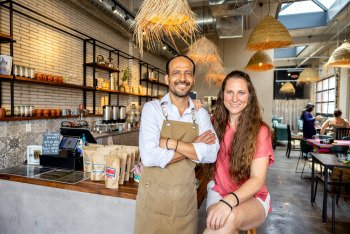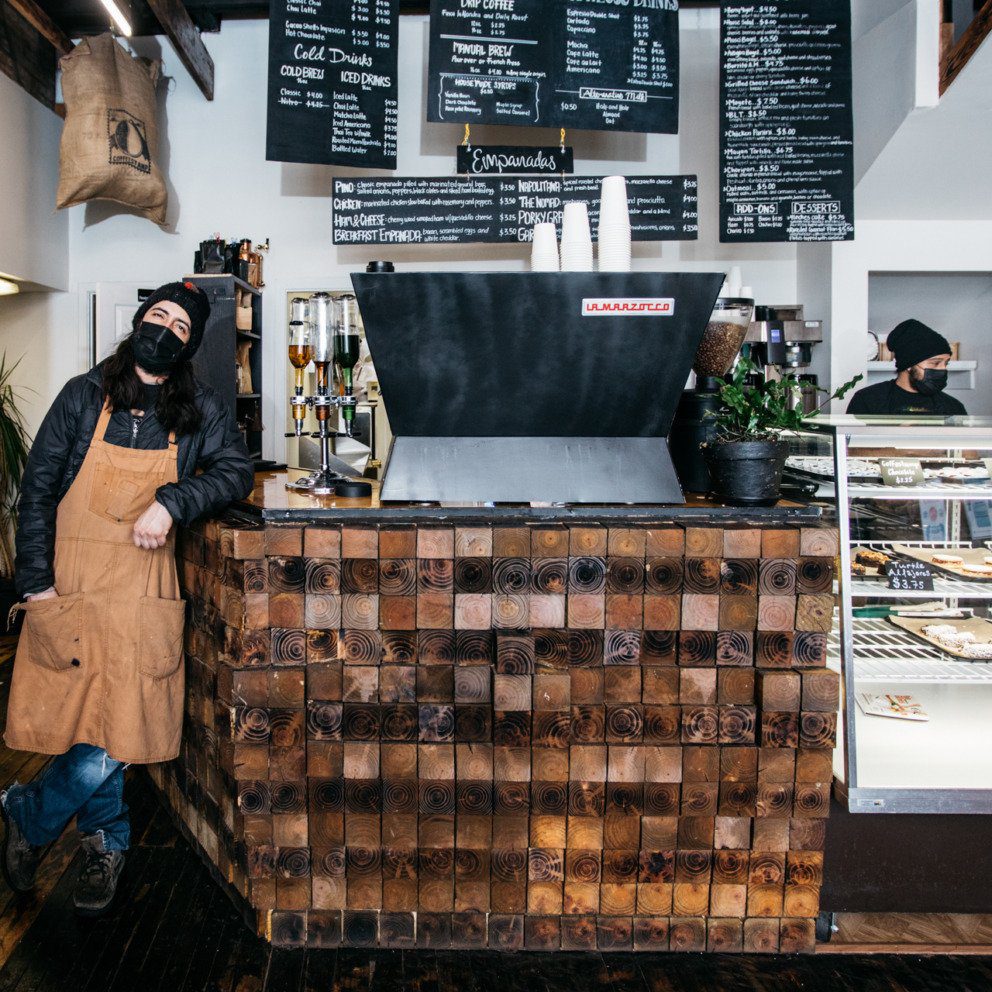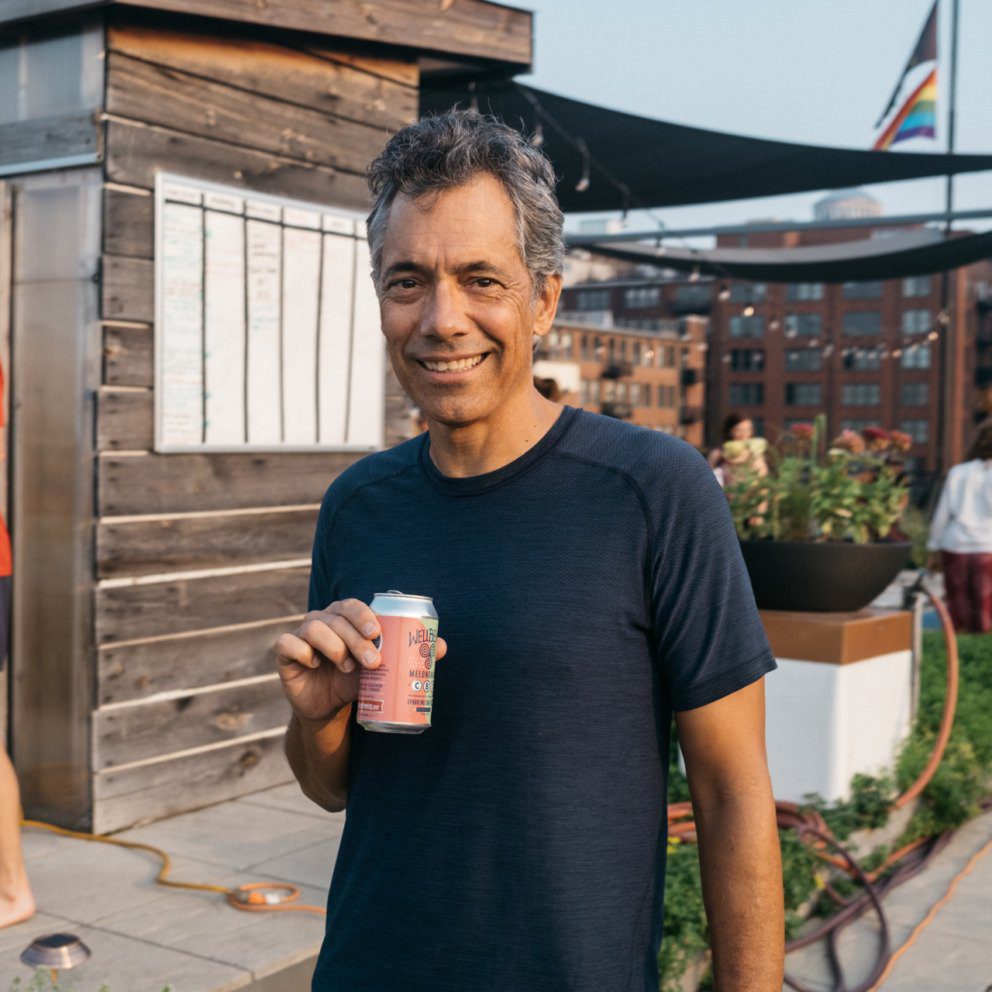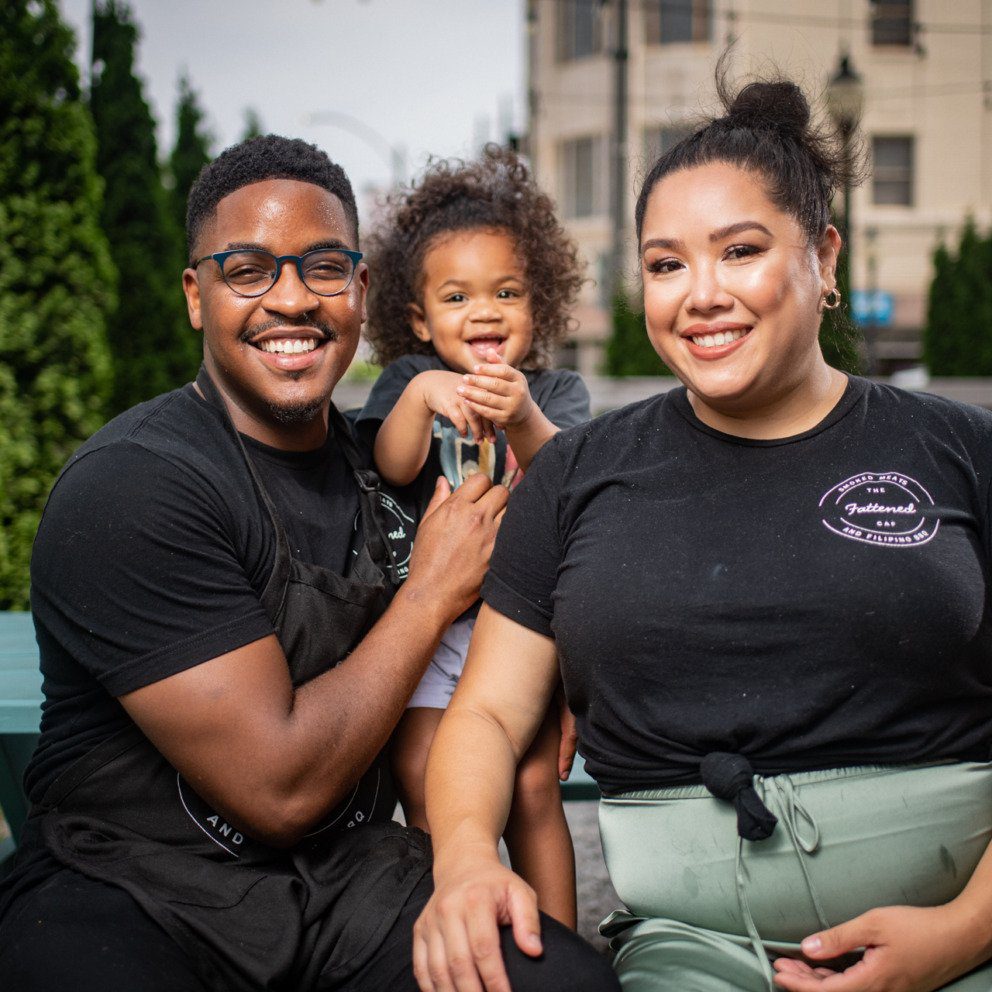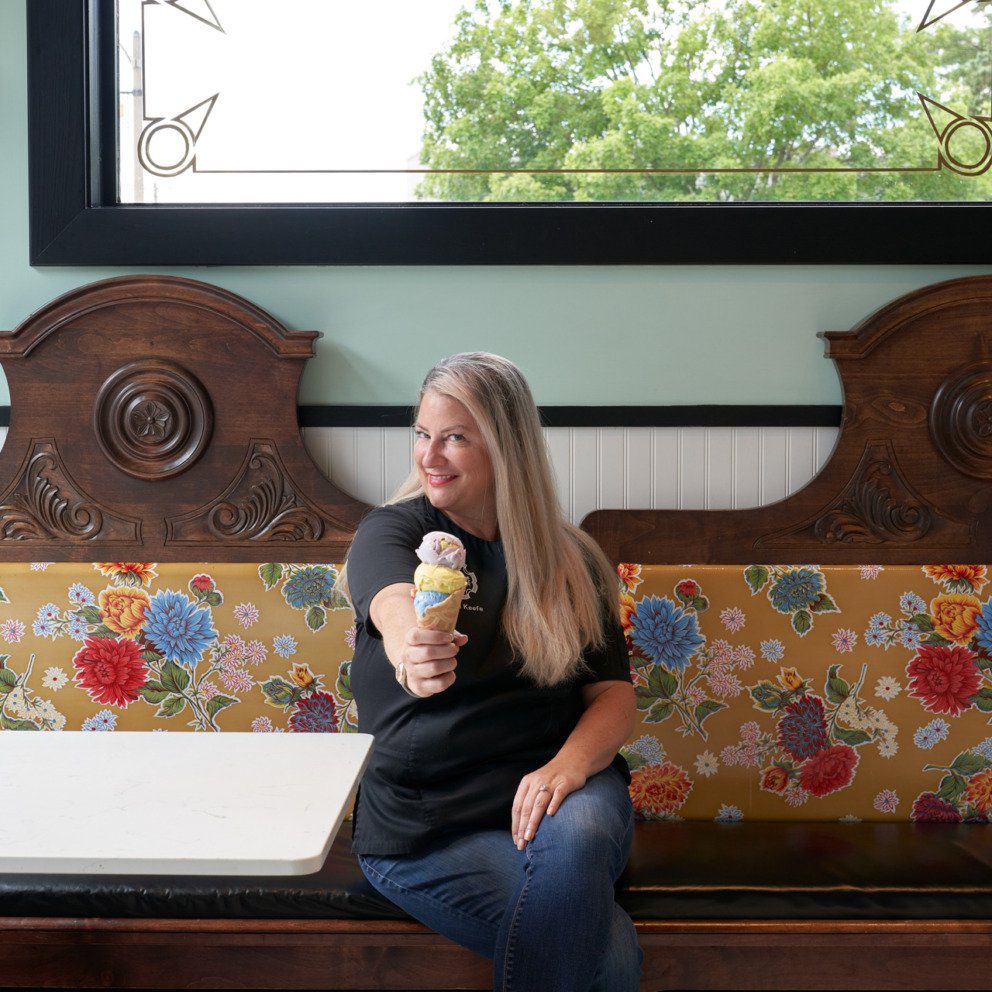Snacking for Change
With Airly crackers, a team from Brentwood-based Post Holdings has created a tasty way for people to combat climate change.
Carbon footprint might be the last thing you’re considering when choosing a snack. But Airly Foods aims to change that.
Post Holdings produces some of the most iconic brands in the grocery aisles, including Honey Bunches of Oats, Chips Ahoy, Honey Maid, Fruity Pebbles and Raisin Bran. However, CEO Rob Vitale told employees Jen McKnight and Mark Izzo to come up with something new – really new.
“Rob had charged us with really disruptive innovation,” McKnight says. “He said, ‘Go find me something that has the potential to disrupt food and beverage.’ And we had a passion for sustainability and things that could help the environment.”
McKnight and Izzo were joined by a third partner, food scientist Kris Corbin, a former colleague of Izzo’s. Corbin consulted with McKnight and Izzo in the early stages of development of Airly, and joined the company full-time in 2020. The team also collaborated with Colorado State University’s Soil Metrics, which provides computation modeling for greenhouse gas emissions to help farmers and others understand how they can use conservation practices to reduce carbon emissions.
While Corbin had years of experience in the research and development of new products from his roles with Birds Eye and Duncan Hines brands, he was intrigued by the challenge of developing a product with a positive environmental impact.
“I got hooked on the idea once I realized what was going on in the regenerative space and in the industry of carbon farming,” Corbin says.
After their initial research on what this disruptive product could be, the team knew they wanted to do something related to carbon, and ultimately landed on crackers. Corbin began experimenting with prototypes in his kitchen, using his kids as taste-testers while they were all home in spring 2020.
“When they finally passed the kid-approved test, I’d mail them to Mark and Jen and let them try them,” Corbin says with a laugh. “Kids don’t really care about the backstory – they’re just like, ‘I don’t want to eat that.’ We kept track of every prototype, and I think the first one that finally got kid-approved was number 267.”
Airly launched into the market in May 2021 with four oat-based flavors: cheddar, sea salt, salted caramel and chocolate. It’s the world’s first climate-friendly cracker.
“We’re the first cracker to remove greenhouse gases from the air with every box we sell,” McKnight says. “Flip the pack over and we put our carbon footprint right on the back, and how many grams of CO2 you just removed from the air – but nobody knows what that means, so we show you how many beach balls of air you just cleaned.”
Each box, as a matter of fact, removes 2,900 beach balls worth of carbon from the air, through farming practices and investing in carbon credits. The Airly team works with scientists and farmers in using the latest carbon farming practices, from crop rotation to precision digital farming. They also use a third party to analyze the environmental impact of the steps in producing the crackers, from baking to transportation, and then invest in carbon credits to offset the greenhouse gases produced during Airly’s production.
“We’re very proud that we bring world-leading climate scientists and soil scientists to work directly with our farmers – that’s really the only way we could have gotten to a climate positive or carbon negative product,” says McKnight. “There are a lot of companies out there talking about being carbon neutral or net zero carbon emissions by 2040 or 2050, but we’re already better than net zero from the day we were born.”
They plan to continue to improve their carbon footprint each year, too, through reducing energy use in farming, developing solar and wind-powered kitchens, and reducing the time it takes to transport ingredients from farm to kitchen.
Even though Airly Foods is a small business, it has the resources of Post Holdings at its disposal.
“The thing about being part of Post is we have so many experts around the company,” McKnight says. “So while Mark and I are the only full-time folks on our Disruptive Innovation team, we had people on the manufacturing side, the market research side, the food safety and quality side. We were able to just beg, borrow, and steal from the expertise of folks around the organization.”
Corbin says now that they’ve figured out how to make delicious, carbon-negative sweet and savory crackers, Airly Foods and Post are looking for further applications.
“We’re currently developing new flavors for later this year, and looking at other manufacturing technologies,” he explains. “We’ve successfully repeated the carbon-farming process, so now we can look at expanding our offerings beyond just snack crackers. We could make cookies, we could make Cheez Doodles-type snacks, protein snacks, really anything that’s grain-based. We’ll be able to expand with this technology, so our pipeline is quickly filling up with new ideas that we can use to bring carbon-negative grains to the market.”
Today, Airly crackers are available locally at Schnucks, at Central Market stores in Texas, as well as directly from the Airly website. McKnight says Schnucks’ senior leadership was especially excited to partner with Airly both because they’re a St. Louis-based company and because of the broader sustainability implications of the product.
“We know there are so many consumers out there that want to do the right thing. But if you walk into the store today trying to find a more sustainable option – good luck. There’s really no way to know,” McKnight says.
Even the crackers’ shape is an intentional reminder that they’re more than just a snack. The crackers’ cloud-like form is meant to become Airly’s signature, synonymous with removing carbon.
“We’re proud to put our carbon footprint right on the back,” says McKnight. “We’re proud of the fact that we designed this brand to be sustainable without trade-offs — that it’s gonna taste as good as any of the big brands, and that the price point is accessible for folks.”
As proud as the team is of what they’ve accomplished, they realize that in the end, taste is what will get the repeat customers, and therefore greater environmental impact, that they hope to achieve.
“We really just want folks to try the crackers,” says McKnight with a smile, “because no matter how good your sustainability proposition is, they’ve gotta taste good!”



